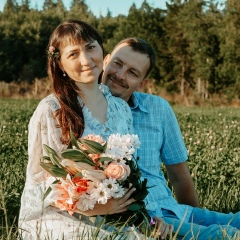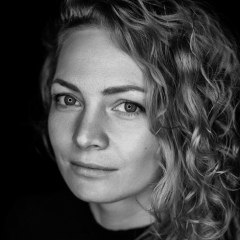Студенты-религиоведы трёх петербургских вузов обсудили особенности полевых религиоведческих исследований
19 марта 2016 года на Факультете социальных наук РГПУ им. А.И. Герцена прошла неформальная встреча студентов-религиоведов РГПУ им. А.И. Герцена, СПбГУ и РХГА на тему: «Религиовед в поле: специфика изучения неоязычества и других современных нетрадиционных религиозных движений». Организаторами встречи выступили доцент кафедры философии религии и религиоведения СПбГУ Г.Е.Боков и доцент кафедры социологии и религиоведения РГПУ им. А.И. Герцена А.В. Гайдуков, который поделился опытом изучения современного язычества. За три часа беседы за чашкой чая студенты и преподаватели не только обсудили полевые исследования, но и наметили стратегии дальнейшего научного сотрудничества.
19 марта 2016 года на Факультете социальных наук РГПУ им. А.И. Герцена прошла неформальная встреча студентов-религиоведов РГПУ им. А.И. Герцена, СПбГУ и РХГА на тему: «Религиовед в поле: специфика изучения неоязычества и других современных нетрадиционных религиозных движений». Организаторами встречи выступили доцент кафедры философии религии и религиоведения СПбГУ Г.Е.Боков и доцент кафедры социологии и религиоведения РГПУ им. А.И. Герцена А.В. Гайдуков, который поделился опытом изучения современного язычества. За три часа беседы за чашкой чая студенты и преподаватели не только обсудили полевые исследования, но и наметили стратегии дальнейшего научного сотрудничества.
Religious students of three St. Petersburg universities discussed the peculiarities of field religious studies
March 19, 2016 at the Faculty of Social Sciences of the Russian State Pedagogical University. A.I. Herzen hosted an informal meeting of students of religion of the Russian State Pedagogical University. A.I. Herzen, St. Petersburg State University and the RCSA on the topic: "A religious scholar in the field: the specifics of studying neo-paganism and other modern non-traditional religious movements." The meeting was organized by Georgy Bokov, Associate Professor of the Department of Philosophy of Religion and Religious Studies of St. Petersburg State University and Associate Professor of the Department of Sociology and Religious Studies of the Russian State Pedagogical University named after I. A.I. Herzen A.V. Gaidukov, who shared his experience in studying modern paganism. During three hours of conversation over a cup of tea, students and teachers not only discussed field research, but also outlined strategies for further scientific cooperation.
March 19, 2016 at the Faculty of Social Sciences of the Russian State Pedagogical University. A.I. Herzen hosted an informal meeting of students of religion of the Russian State Pedagogical University. A.I. Herzen, St. Petersburg State University and the RCSA on the topic: "A religious scholar in the field: the specifics of studying neo-paganism and other modern non-traditional religious movements." The meeting was organized by Georgy Bokov, Associate Professor of the Department of Philosophy of Religion and Religious Studies of St. Petersburg State University and Associate Professor of the Department of Sociology and Religious Studies of the Russian State Pedagogical University named after I. A.I. Herzen A.V. Gaidukov, who shared his experience in studying modern paganism. During three hours of conversation over a cup of tea, students and teachers not only discussed field research, but also outlined strategies for further scientific cooperation.

У записи 17 лайков,
4 репостов.
4 репостов.
Эту запись оставил(а) на своей стене Алексей Гайдуков


































